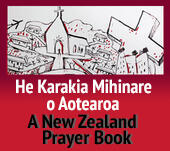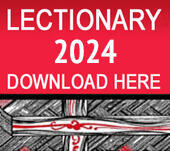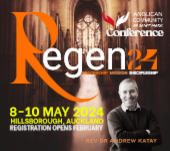To claim that some policies of New Zealand governance are ‘racially based’ and therefore not to be countenanced is at best a blithe neglect of clear historical origins and at worst plain dishonesty.
The story begins on 14 August 1839 with the Colonial Secretary, Lord Normanby, issuing Royal Instructions to Captain W. Hobson RN to go to New Zealand, which was then part of the colonial administration of New South Wales.
He was to have sorted out the wild goings-on at Kororereka in the Bay of Islands. It was thought of as the most lawless place in the South Pacific and Whitehall was concerned that the Church Missionary Society’s inability to protect Maori interests and those of the missionaries and other European settlers was of a scale which needed addressing.
Within six months of his arrival Hobson had held what was probably the island of Maui’s greatest gathering of Chiefs and Maori ever. He had proposed that the document which he had had prepared would meet all parties’ urgencies:
• Firstly the mana of Queen Victoria and therefore her sovereignty over the islands of Niu Tereni would be recognised over all and any other comers (already the United States had a consul here to look after the interests of American citizens who were whaling and sealing out of the Bay of Islands).
• Secondly, the mana of the ‘Chiefs and Maori’ would be recognised as regards their lands, forests and fisheries and other taonga or treasures.
• Finally, in order to allow both ‘sides’ to access independent advice and rulings, it was agreed that the high mana of the status of British subject would be conferred on all Maori, Chiefs or otherwise, which allowed for a judicial system and free trade with New South Wales and beyond.
Brand New Zealand
Thus did begin brand New Zealand. There were and can ever only be just the two interests arising from that Treaty which the Court of Appeal in the 1980s deemed a ‘partnership’: those who are descendants from the Chiefs and Maori who signed the Treaty partnership either before Hobson or as it was being taken around both of the main islands of the new colonial structure thus created.
The other party comprises all those who were allowed – even encouraged – to come here whether from England or other parts of the Queen’s Imperial centre or empire. All non-Maori here are here simply because of that agreement and its subsequent ratification by the international community on the transition of the British Empire into member nations of the League of Nations post-1914 and later the United Nations.
All immigrants since 1840 have always enjoyed the protection of the status of British subjects or as now New Zealand citizens - and the Chiefs and Maori have (or have been supposed to have had) the recognition and protection of their treasured things.
When there is a policy of the New Zealand Government which therefore attempts to advance those protections of the tangata whenua (whom non-Maori can never be) it is to be assumed that they are within the urgings of Te Tiriti 1840. Were they not they would be illegal. Were they resisted their adversaries would likewise be outside the constitution which the law and principles of the Treaty increasingly create.
Finally, there is a stuck record sounding around the vales of discontent: that every New Zealander should have just the one vote and that there be no room for privilege of the few against the many. In other words, scrap the Maori seats in the House.
The error in that complaint is that it ignores the Treaty by quoting Hobson’s alleged words at Waitangi: “We are now all one people”. There was nothing in his Instructions which authorised that urging and for the very good reason that they weren’t. They were the Chiefs and Maori on the one hand and the British Government on the other. Not even a relatively lowly naval captain could work that miracle.
What ought to have happened that day and the ones which followed was that the two ‘sides’ should have worked out how to continue that table talk and create a place to korero formally. Indeed, they came together as one by way of the shared right to exercise their access to the Queen’s courts but that is where it has ended.
Legislative participation
As regards legislative participation this 100% pure New Zealand version of democracy completely excludes Maori from having an effective ability to influence our legislative processes unless a sympathetic caucus of non-Maori (other Treaty partner) legislators can be corralled to agree with them.
Of course there must be one law for those whose rights were preserved by the Treaty and there must be the means for them to be protected in their achievement of such. And the ‘Imperial’ sides of the Treaty can expect the same by reason of the (by now transferred) sovereignty of the Queen and Parliament to achieve the safe transitions of their Bills.
Just as all have equal access to the same courts it is a logical outcome of the Treaty after all these years that if there need to be more ‘Maori seats’ (I say 50-50 urgently) to achieve those protections where the courts cannot (note the number of appeals which had to go to the Privy Council) then Parliament’s composition must reflect that too.
The Dirty Politics Hager saga has thankfully put lots of election chatter off the wi-fi links. No more are we hearing about the Act leader’s battle with W. Peters to be the first past the race-based post by 7pm on September 20. Since the bloggers’ bonanza no longer exists, the earrings’ battle is no longer being fought on the front pages or by Gallop polls.
What that means, of course, is that the chances for a proper discussion increase, and there is no risk to any resulting clarity as to the error of those vote-catching cries about votes not being available to those who mouth a purity of racial harmony by their calls that their votes would never be able to be tainted by matters racial.
Unfortunately, that is not so easy to escape from and dismiss. Anyone who doesn’t understand and accept that ought not to be able to enjoy the right to vote – a right which stems directly from the Treaty of Waitangi 1840.
Simon Reeves is an Auckland barrister and solicitor.

















Comments
Log in or create a user account to comment.